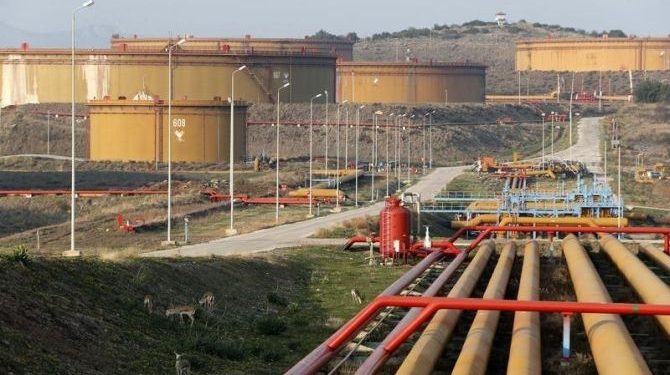Islamabad: Pakistan and Turkmenistan Thursday signed a joint implementation plan to execute the multibillion-dollar Turkmenistan-Afghanistan-Pakistan-India (TAPI) gas pipeline project.
The signing ceremony was witnessed by Prime Minister Shehbaz Sharif and a delegation of Turkmenistan led by Minister of Energy and Water Resources Daler Juma, state-run Radio Pakistan reported.
State Minister for Petroleum Musadik Malik and Turkmenistan’s State Minister and Chairman of TurkmenGas, Maskat Babayev inked the accord.
Speaking on the occasion, Prime Minister Sharif said that TAPI was a very important project for the progress of the entire region and securing natural gas with concrete assurances and mutually agreed terms and conditions.
“We have to negotiate with this challenge through speedy action,” he said, highlighting the significance of energy for developing countries of the region.
He expressed the confidence that the TAPI project will bring an era of regional cooperation and prosperity, and asked the Pakistani team to speed up its planning and then its execution.
The Prime Minister said both Pakistan and Turkmenistan are brotherly countries and are ready to expand their economic cooperation.
The TAPI project includes Turkmenistan, Afghanistan, Pakistan and India. The 1,814-km natural gas pipeline originates from Turkmenistan and passes through Afghanistan and Pakistan to reach India.
The project is being developed by a consortium established by four individual state-owned gas companies Turkmengaz (Turkmenistan), Afghan Gas (Afghanistan), Interstate Gas Service (Pakistan), and Gas Authority of India and Indian Oil (India).
The four countries signed an Inter Government Agreement (IGA) and Gas Pipeline Framework Agreements (GPFA) in December 2010 for the development of the pipeline.
The construction work began in 2015 but made little progress due to instability in Afghanistan. But after the Taliban takeover, the situation has changed and the new rulers of Afghanistan have promised to raise a dedicated force for the security of the pipeline.
PTI






































